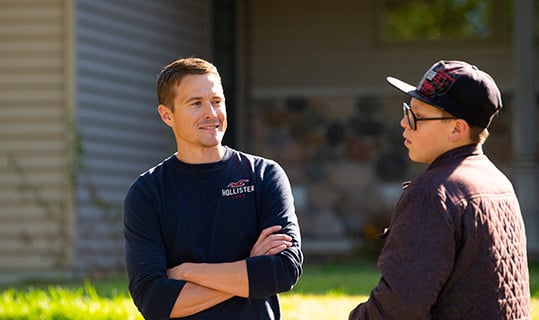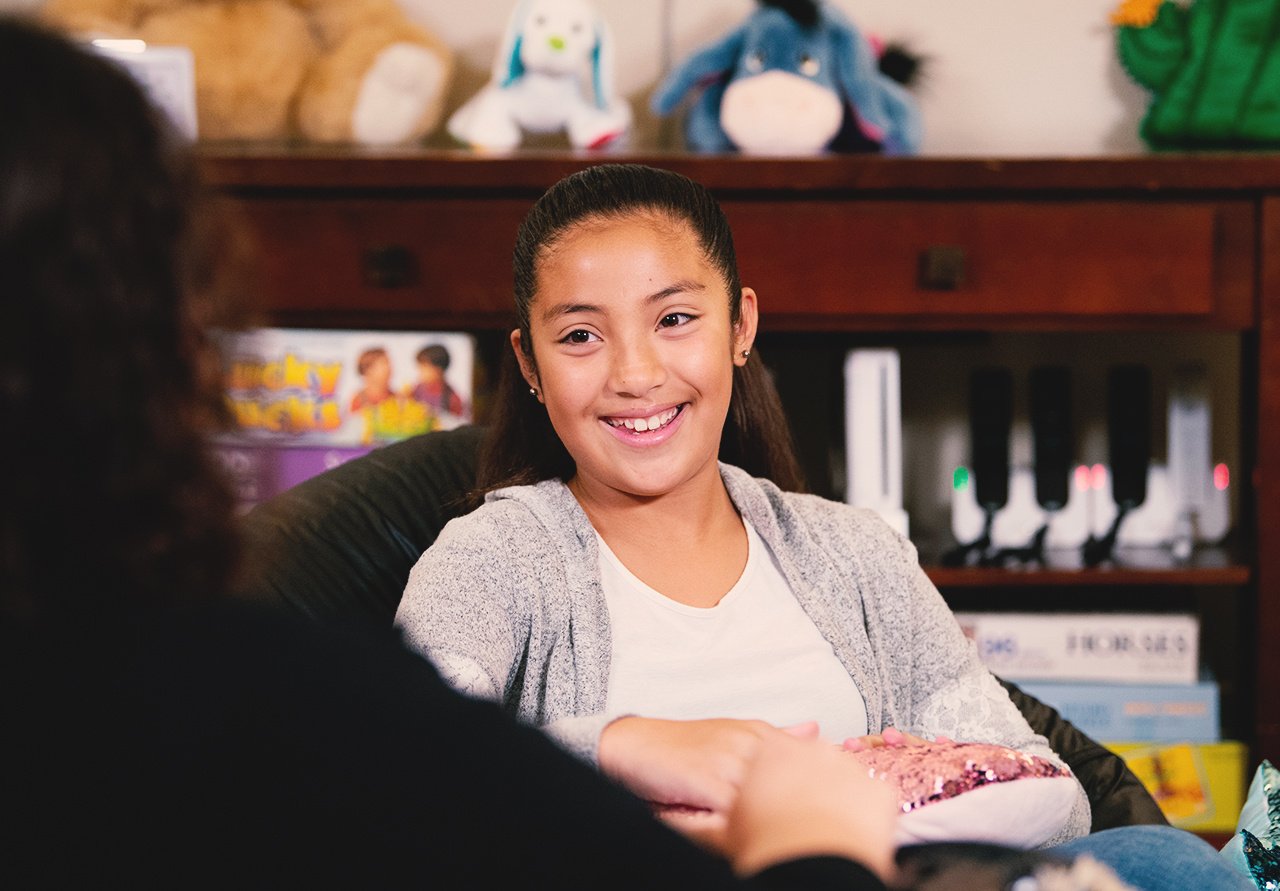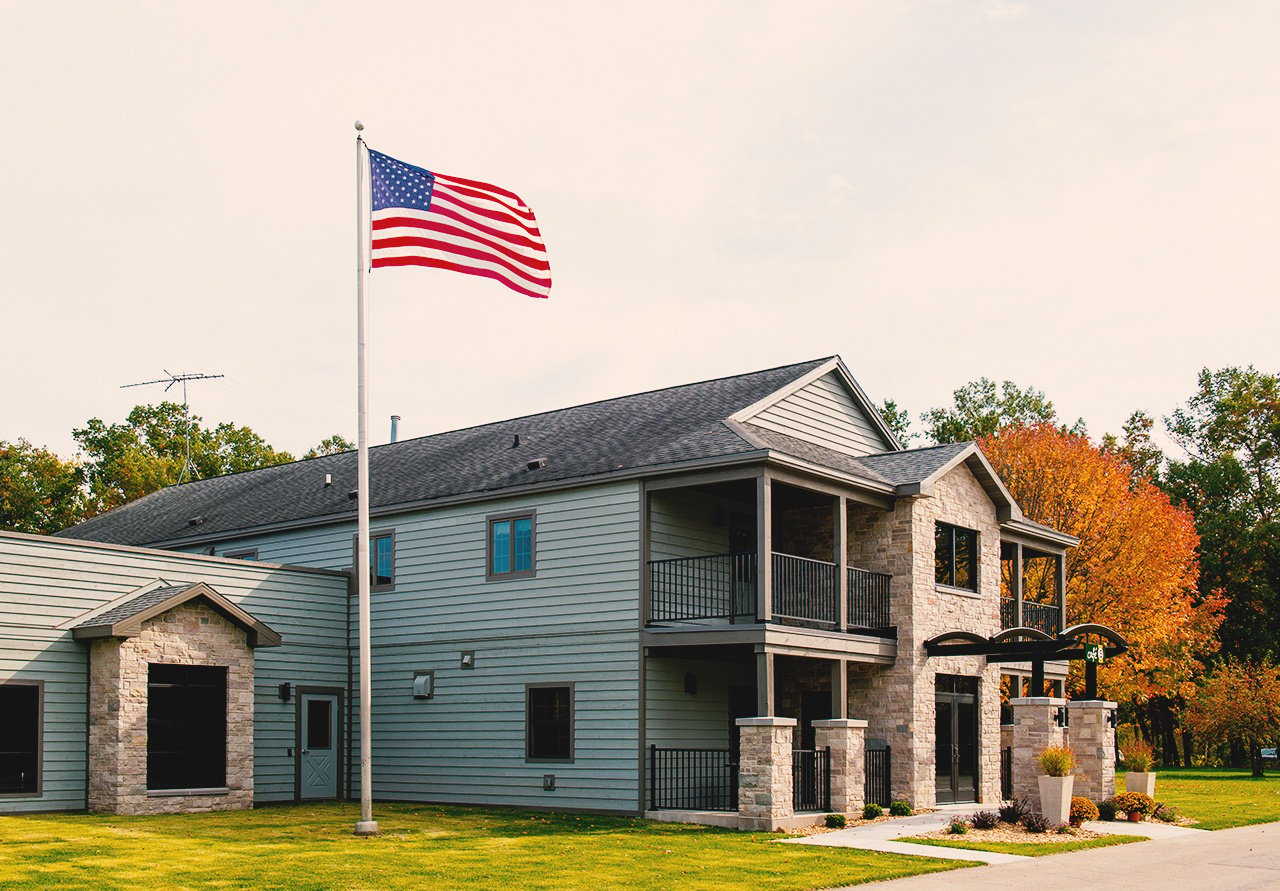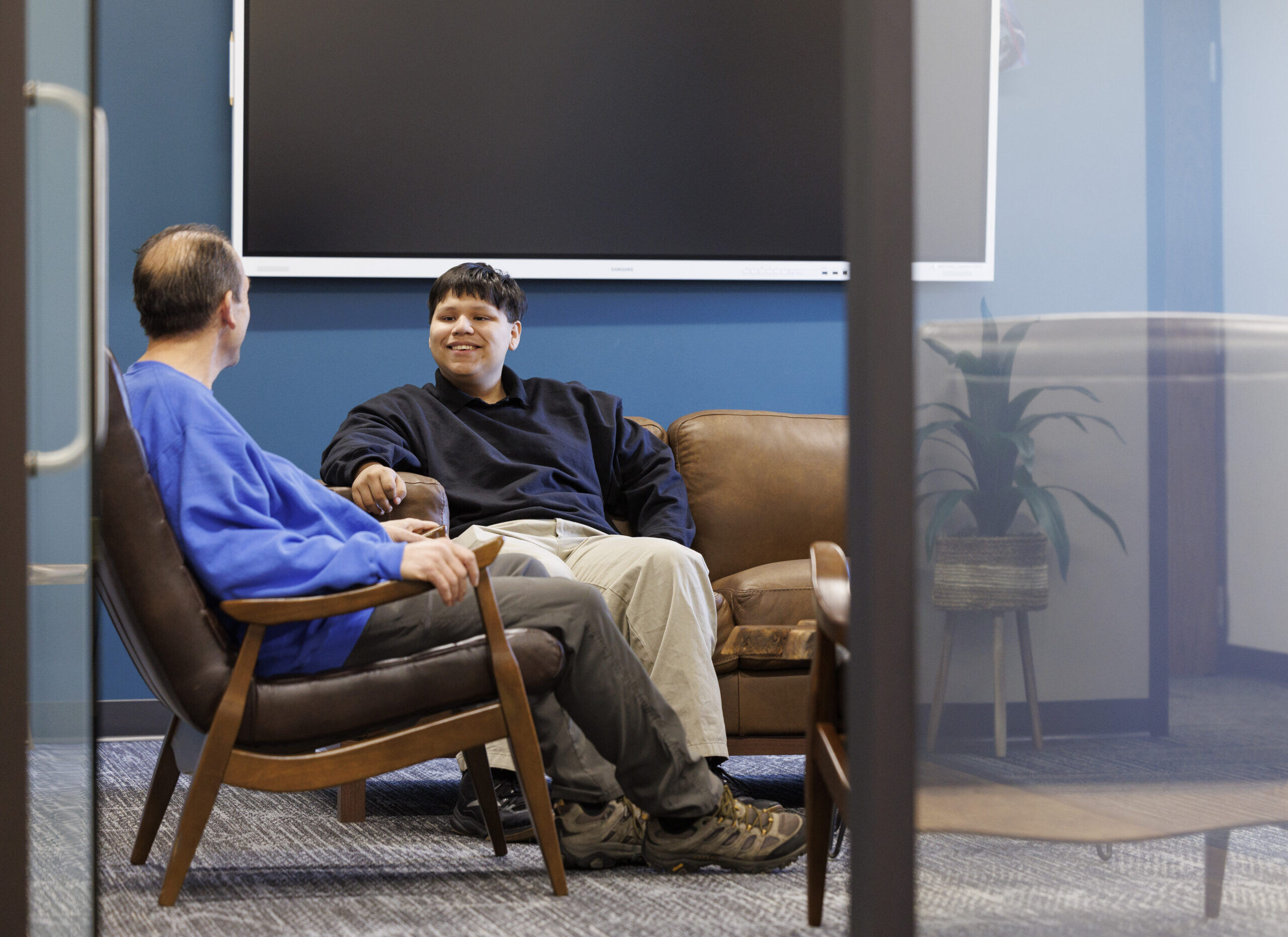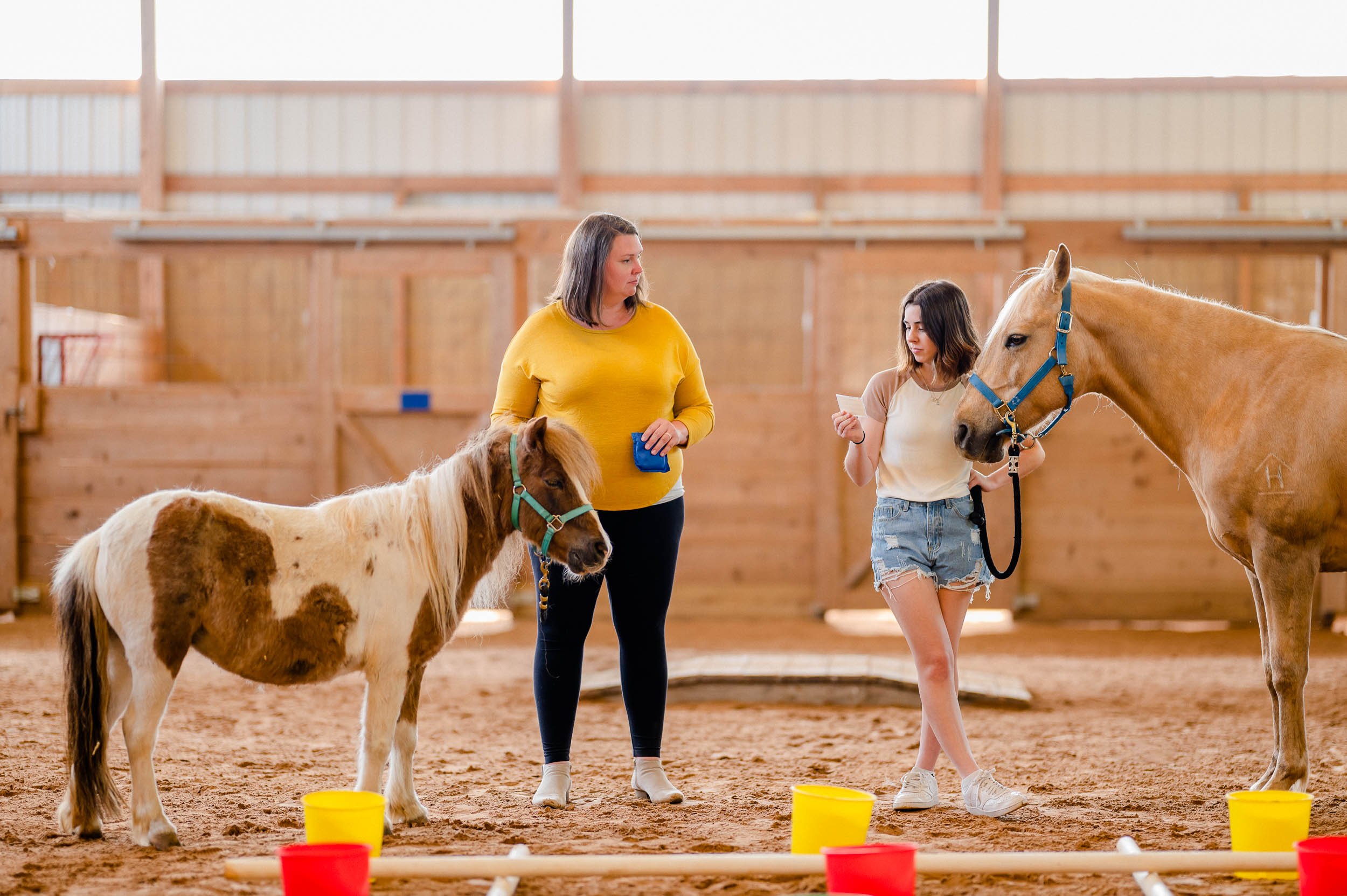
What is equine-assisted therapy?
Equine therapy — also called hippotherapy — is a treatment program for people with cognitive and physical disabilities, substance abuse issues, mental illness, and behavioral disorders. While it may be suitable for all age groups, Rawhide’s program is specifically for teens — it’s called CHAPS (Children and Horses as Partners) Equine-Assisted Therapy.
What’s the difference between equine-assisted therapy and adaptive riding?
Equine-assisted therapy involves bonding with and caring for a horse, including grooming, feeding, and general chores, and a licensed counselor facilitates the therapy. Adaptive riding teaches the skills of horsemanship to people with disabilities or other challenges and requires an instructor, but not a counselor.
How is working with horses therapeutic?
Horses are highly intuitive, with the ability to read and react to human body language. They are also sociable and have unique personalities. All of these qualities make horses excellent therapeutic partners for teens that might have difficulty talking to people about their emotions. Horses can make teens feel secure enough to work through difficult situations and emotions.
What are the benefits of equine-assisted therapy?
The potential benefits of equine therapy are numerous, including:
- A decrease in depression and anxiety
- Improved confidence and self-esteem
- The development of coping and life skills
- Better communication and social skills
Rawhide’s counselors customize treatment for every individual to maximize the benefits of equine therapy.
Which diagnoses can benefit from equine-assisted therapy?
Equine therapy can be helpful for teens who have ADHD, post-traumatic stress disorder, or behavioral disorders. It’s also effective for helping teens manage anxiety, grief, family-related difficulties, depression, and learning disabilities. In short, working with horses can help teens develop the skills they need to live a full life, regardless of whether they have a disability or clinical diagnosis.
What training do equine therapists have?
Rawhide’s equine counselors all have post-secondary therapeutic training and are certified by the Equine Assisted Growth and Learning Association (EAGLA).
What can I expect from an equine-assisted therapy session?
- How long is each session? Each session is 45 to 60 minutes.
- How frequently do participants attend and for how long (for example: twice a week for two months)? Generally, they attend weekly and it can range from 4 to 9 months.
- What do participants do in these sessions (riding, feeding, grooming, etc.)? All of our work is groundwork. Clients do not ride. They may engage in activities with the horses, walk them, groom them and, sometimes, they may just spend time being quiet with the horse.
- How often is equine therapy offered (all year long, only in spring and summer, etc.)? Equine therapy is offered year round.
- Is this a residential program? No, equine therapy is not a residential program.
- I assume parents/guardians are NOT allowed to attend, correct? On an ongoing basis, no, parents do not attend equine sessions. However, parents or siblings may join for a family session occasionally.
Does health insurance cover equine-assisted therapy?
Rawhide is happy to answer any questions you have about insurance coverage for equine therapy. In some cases, you may need a referral from another provider.
Where does Rawhide Youth Services offer equine-assisted therapy?
We offer equine therapy at our counseling centers in Shiocton, Milwaukee, New London, and Fond du Lac.
How can I get my teen into an equine-assisted therapy program?
Fill out this form to get started.

